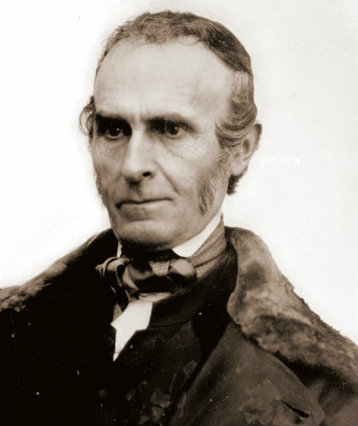Introduction
Thanksgiving was, to begin with, a festival of the harvest, with gratitude expressed for the bounty of nature. This harvest hymn was written in 1859 by Massachusetts Quaker poet and ardent abolitionist John Greenleaf Whittier (1807–92) for exercises at the Congregational Church as part of the annual fair of the Amesbury and Salisbury Agricultural and Horticultural Society. Whittier, who grew up on a New England farm and had little formal education, was heavily influenced by his pious upbringing, earning him the moniker “America’s finest religious poet.”
Here, he begins by pointing out that, although the pagan earth-worshipping festivals of Persia and Greece have long since disappeared, beauty, nature, woman’s grace and household skill, and manhood’s toil are still honored among us, as we are summoned to acknowledge the blessings born of earth, sun, and rain. What is “Nature’s bloodless triumph”? Who is “our common mother,” and what is her relation to “our Father’s hand”? Why does the poet say that “the bounty overruns our due,” and what should be our response to this unmerited plenty? The poet credits sunshine and rain, but he also credits our God-given power to transform the rugged soil, “Freedom’s arm” that “can change a rocky soil to gold,” and our “brave and generous lives” that warm the cold and inhospitable world around us. Is this a song of praise to nature (earth, sky, sun, or rain), to God, or to the power of human beings? For what, finally, and to whom, does he seek to awaken our thanksgivings? How does this gratitude differ from the pagan worship of the earth goddess and sky god?
The Persian’s flowery gifts, the shrine
Of fruitful Ceres, charm no more;
The woven wreaths of oak and pine
Are dust along the Isthmian shore.
But beauty hath its homage still,
And nature holds us still in debt;
And woman’s grace and household skill,
And manhood’s toil, are honored yet.
And we, to-day, amidst our flowers
And fruits, have come to own again
The blessings of the summer hours,
The early and the latter rain;
To see our Father’s hand once more
Reverse for us the plenteous horn
Of autumn, filled and running o’er
With fruit, and flower, and golden corn!
Once more the liberal year laughs out
O’er richer stores than gems or gold;
Once more with harvest-song and shout
Is Nature’s bloodless triumph told.
Our common mother rests and sings,
Like Ruth, among her garnered sheaves;
Her lap is full of goodly things,
Her brow is bright with autumn leaves.
Oh, favors every year made new!
Oh, gifts with rain and sunshine sent
The bounty overruns our due,
The fullness shames our discontent.
We shut our eyes, the flowers bloom on;
We murmur, but the corn-ears fill,
We choose the shadow, but the sun
That casts it shines behind us still.
God gives us with our rugged soil
The power to make it Eden-fair,
And richer fruits to crown our toil
Than summer-wedded islands bear.
Who murmurs at his lot to-day?
Who scorns his native fruit and bloom?
Or sighs for dainties far away,
Beside the bounteous board of home?
Thank Heaven, instead, that Freedom’s arm
Can change a rocky soil to gold,—
That brave and generous lives can warm
A clime with northern ices cold.
And let these altars, wreathed with flowers
And piled with fruits, awake again
Thanksgivings for the golden hours,
The early and the latter rain!
Return to The Meaning of Thanksgiving Day.



Post a Comment